Tech With a Green Governance Conscience
Ontario Tech University researchers from the Faculty of Social Science and Humanities (FSSH) and the Digital Life Institute's Sustainability, Equity and Digital Culture research cluster hosted a symposium on January 26 and 27, 2023 to explore the interconnection between technology, society and ecology.
Tech with a Green Governance Conscience: Exploring the Technology-Environmental Policy Nexus, an event funded and supported by the Social Sciences and Humanities Research Council, featured international keynote speakers who discussed:
- The intersection between advanced technology and the drivers and impacts of the triple planetary threat: climate change, biodiversity loss, and pollution.
- How governments are using technology for environmental protection and risk assessment, from remote sensing to geo-engineering to artificial intelligence and other tech.
- The promising role of emerging technology in environmental regulation: ethical and practical concerns.
Speakers in order of presentation
Day One
-
Peter Stoett
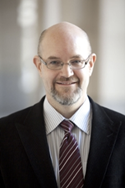 Speaker/facilitator: Peter Stoett
Speaker/facilitator: Peter StoettOpening/closing remarks
Bio: Dr. Peter Stoett's main areas of research expertise include international relations and law, global environmental politics, and human rights; he is especially interested in critical perspectives on the many nuanced intersections between these themes. Current research focuses on biodiversity conservation policy, transnational environmental crime, marine pollution prevention, climate justice, and Canadian-American environmental relations. He has also worked extensively on genocide and war crimes prevention and punishment.
-
Adrian Loo
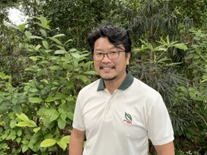 Speaker: Adrian Loo, Wildlife Management and Senior Director, Singapore Botanic Gardens
Speaker: Adrian Loo, Wildlife Management and Senior Director, Singapore Botanic Gardens Presentation: “Singapore's Centre for Wildlife Forensics - Using Science and Tech to Fight Illegal Wildlife Trade”
Bio: Dr. Adrian Loo, Group Director, Wildlife Management and Senior Director, Community Projects, National Parks Board (NParks), graduated with a Ph.D. from the National University of Singapore (NUS) studying palms in the montane forests of Peninsular Malaysia and was a post-doctoral fellow in Kew Gardens and then the National University of Singapore researching population genetics and biodiversity. He also chairs the Otter Working Group in Singapore and co-chairs the Long-Tailed Macaque Working Group. He carries out forest restoration, species recovery, animal rescue and rehabilitation work in the nature reserves.
-
Simone Haysom
 Speaker: Simone Haysom, Thematic Lead on Environmental Crime, Global Initiative Against Transnational Organized Crime
Speaker: Simone Haysom, Thematic Lead on Environmental Crime, Global Initiative Against Transnational Organized CrimePresentation:“‘Imagine it’s a mall’: describing the dynamics of online illicit markets in endangered species”
Bio: Simone Haysom is the Thematic Lead on Environmental Crime at the Global Initiative against Transnational Organised Crime (GI-TOC). She leads the work of the Market Monitoring and Friction Unit, which uses digital technology, including machine-learning-enabled processes, to understand and respond to illegal online marketing of wildlife products. She lives in Geneva.
-
Michelle Anagnostau
 Speaker: Michelle Anagnostau - Ph.D. candidate and SSHRC Doctoral Fellow, University of Waterloo
Speaker: Michelle Anagnostau - Ph.D. candidate and SSHRC Doctoral Fellow, University of Waterloo Presentation: “Public sentiment analysis of exotic pet trade in Canada”
Bio: Michelle Anagnostou is a Ph.D. Candidate and SSHRC Doctoral Fellow in Geography and Environmental Management at the University of Waterloo, Canada. Her doctoral research aims to understand how the illegal wildlife trade converges with other types of transnational organized crime. She completed her MSc in Conservation and International Wildlife Trade at the University of Kent, UK, and her BSc in Ecology and Evolutionary Biology at the University of Toronto, Canada.
-
Michael Enns - KEYNOTE
 Speaker: Michael Enns, Director General, National Priorities and Planning
Speaker: Michael Enns, Director General, National Priorities and Planning Presentation: “Technology and Data Science in Environmental Enforcement” KEYNOTE
Bio: Michael joined Environment Canada in 2007, where he worked with Indigenous governments to develop and implement the environmental portions of modern treaties. Currently, Michael is Environment Canada’s Director General of National Priorities and Planning within its Enforcement Branch. He is responsible to use the latest intelligence and data science techniques to identify and target offenders that pose the greatest threat to Canada’s environment and wildlife. Michael holds Masters and Honors degrees in Applied Criminology from the University of Ottawa.
-
Oonagh Fitzgerald
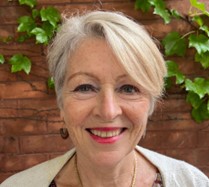 Speaker: Oonagh Fitzgerald, Senior Fellow at the Human Rights Research and Education Centre of the University of Ottawa -
Speaker: Oonagh Fitzgerald, Senior Fellow at the Human Rights Research and Education Centre of the University of Ottawa - Presentation: “Climate Change, Digital technology, and Human Rights: An International Law and Humanities Perspective”
Bio: Dr. Oonagh Fitzgerald is a Senior Fellow with the Human Rights Research and Education Centre and President of the International Law Association of Canada. Oonagh was a senior executive and lawyer in the federal public service, directed the International Law Research Program at the Centre for International Governance Innovation and co-chaired the Canadian Environmental Domestic Advisory Group established under the CETA.
-
Adam Toomes
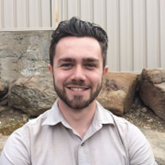 Speaker: Adam Toomes, Ph.D. candidate and President of the Biology Society of South Australia, University of Adelaide
Speaker: Adam Toomes, Ph.D. candidate and President of the Biology Society of South Australia, University of Adelaide Presentation: "Applying web scrapers to the context of wildlife trade to predict biosecurity risk: lessons learned"
Bio: Adam is a postdoctoral researcher based in South Australia at the University of Adelaide. Adam's overarching focus is on the international wildlife trade and its many impacts, trends and complex driving factors. Currently, Adam is researching the global trade of reptiles endemic to Australia - using online trade, species traits and wildlife enforcement intelligence to anticipate the risk of unsustainable trade to threatened populations.
-
Cecilia Fischer
 Speaker: Cecilia Fischer
Speaker: Cecilia FischerPresentation: “Introducing ShellBank – the World’s first Marine Turtle Traceability Toolkit and DNA Database"
Bio: Cecilia Fischer is responsible for coordinating ADB’s commitment to combat illegal wildlife trade (IWT) in the Philippines and Southeast Asia. She is also a consultant for the World Bank, exploring the development of a regional coordination platform for donors and partners working on counter-IWT projects across Asia. She co-authored Philippine conservation action plans on marine turtles and dugongs and has a certificate in Wildlife Forensic Sciences and Conservation.
-
Judith Rakowski
 Speaker: Judith Rakowski, Ph.D. candidate, Department of Geographical Sciences, University of Maryland
Speaker: Judith Rakowski, Ph.D. candidate, Department of Geographical Sciences, University of Maryland Presentation: "Conservation Criminology and First Insights from Wildlife Crime Prevention in Vietnam"
Bio: Judith is a Ph.D. student and research assistant at the lab of Conservation Criminology, Department of Geographical Sciences from the University of Maryland, College Park. She holds an M.Sc. in "Global Change Geography" from Humboldt-University Berlin, Germany, focusing on land-use change, protected area effectiveness and socio-ecological systems. Her research interests are preventing wildlife crime and other harmful behaviours towards nature by understanding underlying narratives and strains, historical legacies and spatial distributions of such.
-
Elle Jingjing Xu
 Speaker: Elle Jingjing Xu, Ph.D. candidate, Department of Geographical Sciences, University of Maryland
Speaker: Elle Jingjing Xu, Ph.D. candidate, Department of Geographical Sciences, University of Maryland Presentation: "Conservation Criminology and First Insights from Wildlife Crime Prevention in Vietnam"
Bio: Elle is a first-year Ph.D. student in Geographical Sciences from the University of Maryland, College Park. She is also a research assistant at Prof. Meredith Gore’s Conservation. Criminology Lab. In 2020, Elle obtained her master’s degree in Environmental Policy from Duke University with research focused on the conservation of giant pandas, animal behaviour studies, and wildlife protection laws and policies. In 2022, Elle joined Wildlife Conservation. Society (WCS China) Countering Wildlife Trafficking program as an international enforcement cooperation specialist, working on liaising with governmental agencies, NGOs, and other stakeholders to collaborate on transboundary wildlife trafficking cases. Her current research interests are understanding place-network in wildlife trafficking, environmental crimes and one health, and human-wildlife co-existence.
-
Isabel Pedersen
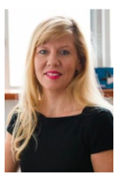 Speaker: Isabel Pedersen, Director of Digital Life Institute
Speaker: Isabel Pedersen, Director of Digital Life Institute Presentation: “AI ethics, ethically-aligned design, and sustainability”
Bio: Dr. Isabel Pedersen is the founding Director of the Digital Life Institute, an international research network of multidisciplinary scholars studying the social implications of emergent digital technologies, where she also leads the AI and Social Implications cluster. She is a Professor of Communication Studies at Ontario Tech University and researches the cultural, ethical, and political challenges posed by technological change through design, adoption and adaptation, concentrating on emergent digital devices.
-
Tanner Mirrlees
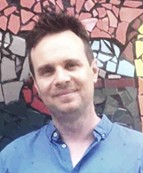 Speaker: Tanner Mirrlees - Associate Professor, Ontario Tech University
Speaker: Tanner Mirrlees - Associate Professor, Ontario Tech University Presentation: "How to Think About 'Digital Tech with a Green Conscience': for Environmental Governance”
Bio: Tanner Mirrlees is the director of Communication and Digital Media Studies at the Faculty of Social Sciences and Humanities at Ontario Tech University. Some of Mirrlees' current research examines the geopolitical economy of the US and China’s ICT and media industries, the politics and digital technologies of energy transition, video games and the future of warfare.
-
Steven Cooke
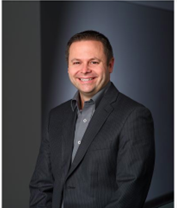 Speaker: Steven Cooke, Director of the Institute of Environmental and Interdisciplinary Science, Carleton University
Speaker: Steven Cooke, Director of the Institute of Environmental and Interdisciplinary Science, Carleton University Presentation: "Technoscience and biological conservation"
Bio: Dr. Cooke is a Professor and Canada Research Chair of Environmental Science and Biology at Carleton University (Ottawa, Ontario) in the field of fish ecology and conservation physiology. Dr. Cooke is also an Adjunct Professor in the Biology Department at the University of Waterloo and an Affiliate Research Scientist at the Illinois Natural History Survey.
-
Patricia Romero-Lankao
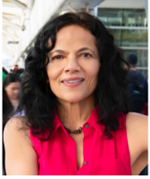 Speaker: Patricia Romero-Lankao, Senior Research Scientist, National Renewable Energy Laboratory
Speaker: Patricia Romero-Lankao, Senior Research Scientist, National Renewable Energy Laboratory Presentation: “Equity and Justice in Energy Transitions in Los Angeles”
Bio: Dr. Patricia "Paty" Romero-Lankao joined NREL's Center for Integrated Mobility Sciences in 2018 as a senior research scientist in a joint appointment with the University of Chicago's Mansueto Institute for Urban Innovation, where she is a research fellow. Previously, she was a senior scientist at the National Center for Atmospheric Research. Throughout her career, she has developed a considerable body of highly regarded sociological and transdisciplinary research resulting in several research grants and some 135 peer-reviewed publications.
-
Amin Mohamed Elamin
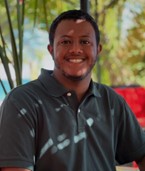 Speaker: Amin Mohamed Elamin, Ph.D. Candidate, University of Maryland
Speaker: Amin Mohamed Elamin, Ph.D. Candidate, University of Maryland Presentation: “Challenges Associated with Eco-technology: The Case of Modern Microalgae Farming in the United States”
Bio: Amin M. Elamin is a Ph.D. student in the Department of Geographical Sciences at the University of Maryland, where he is advised by Dr. Meredith Gore. By leveraging mixed methods research, Elamin's work explores the interface of disaster response and resilience in the context of human-environmental relationships, governance, and development with a particular interest in sustainability and the food-energy-water (FEW) nexus. He received his Bachelor of Science in Molecular Biology from Yale University and Masters in Psychology from the University of Maryland.
-
Andrea Kirkwood
 Speaker: Andrea Kirkwood, Professor, Ontario Tech University -
Speaker: Andrea Kirkwood, Professor, Ontario Tech University - Presentation: “The green technology toolbox for managing biodiversity must include traditional ecological knowledge”
Bio: Andrea Kirkwood completed an undergraduate (Waterloo) and graduate (McMaster, Toronto) degrees in environmental biology, including aquatic ecology and environmental microbiology. Andrea spent several years as a postdoctoral fellow (Oklahoma State, Calgary) prior to joining the Faculty of Science at Ontario Tech University. Andrea is currently a Professor of Environmental Biology, where in addition to research and teaching, she is actively involved in community-based environmental stewardship initiatives.
-
Andy Sheppard
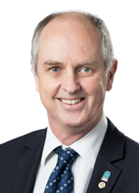 Speaker: Andy Sheppard, Chief Research Scientist Biosecurity, CSIRO
Speaker: Andy Sheppard, Chief Research Scientist Biosecurity, CSIRO Presentation: “Responsible innovation towards Biosecurity technology delivery”
Bio: Dr. Andy Sheppard is a Chief Research Scientist and Adjunct Professor at the Australian National University in Biosecurity. He is also Co-Executive Director Department of Agriculture Fisheries and Forestry-CSIRO Catalysing Australia’s Biosecurity Initiative and Director of CSIRO’s European laboratory. He is a population ecologist with an international reputation in biological control and risk assessment, focusing on the management of invasions of invasive plants, invertebrates, vertebrates and diseases. He has published two books and many book chapters as part of more than 150 peer-reviewed publications.
-
Dan Hoornweg
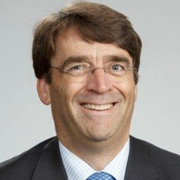 Speaker: Dan Hoornweg, Associate Professor, Faculty of Engineering and Applied Science, Ontario Tech University
Speaker: Dan Hoornweg, Associate Professor, Faculty of Engineering and Applied Science, Ontario Tech University Presentation: “Green Governance. What’s green? What’s governance?”
Bio: Following almost 20 years with the World Bank, including as Lead Advisor overseeing Sustainable Cities and Climate Change programs, I returned to Ontario in 2012. I am now Associate Professor and Richard Marceau Chair at Ontario Tech. My academic background includes degrees in Earth Sciences (University of Waterloo), a Masters in Environmental Engineering (Guelph) and a Ph.D. in Civil (Sustainability) Engineering (University of Toronto, 2015). I am also the Chief Safety and Risk Officer for the Province of Ontario (Technical Standards and Safety Authority, TSSA). My most recent books are ‘Cities and Sustainability: A New Approach’ (Routledge 2016) and editor of ‘Letters to a Young Engineer’ (Canadian engineering convocations 2014 – 2018).
-
Michael Tlusty
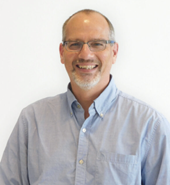 Speaker: Michael Tlusty, Associate Professor, University of Massachusetts Boston
Speaker: Michael Tlusty, Associate Professor, University of Massachusetts BostonPresentation: “Real-time automated species-level detection for the wildlife trade and its benefits for science, policy and trade”
Bio: Dr. Michael Tlusty is an Associate Professor of Sustainability and Food Solutions at the University of Massachusetts Boston. He uses technological solutions to end the illegal wildlife trade, as well as to improve food production. He was part of the grand prize-winning team for the 2016 Wildlife Crime Tech Challenge and is currently funded to create disease sensors for aquaculture.
-
Delon Omrow
 Speaker/facilitator: Delon Omrow - Postdoctoral Fellow, Ontario Tech University
Speaker/facilitator: Delon Omrow - Postdoctoral Fellow, Ontario Tech University Presentation: “Into the Metaverse: Tuvalu and Climate Change”
Bio: Dr. Delon Alain Omrow is a Postdoctoral Fellow at Ontario Tech University. He earned his undergraduate and graduate degrees in criminology from York University and the University of Toronto, respectively. Dr. Omrow worked with Conservation International Guyana, overseeing the establishment of the country’s first community-owned conservation area and is the author of A History of Discursive Violence: constructing the Amerindian ‘other’. He teaches in the Faculty of Social Science and Humanities at Ontario Tech University, exploring what he refers to as racialized ecologies, the androcentric-anthropocentric symbiosis of trauma, and the way the lived experiences of the disempowered and marginalized are articulated through contemporary environmental discourse. In addition, he has written for numerous publications, including The European Journal of Research and Reflection in Arts and Humanities and The International Journal of Academic Research and Reflection.
Day Two
-
Timothy MacNeill
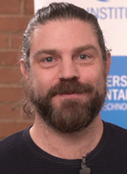 Speaker: Timothy MacNeill, Senior Teaching Professor and Director of Sustainability Studies, Ontario Tech University
Speaker: Timothy MacNeill, Senior Teaching Professor and Director of Sustainability Studies, Ontario Tech University Presentation: "Sustainable Development, Degrowth, and Technological Innovation"
Bio: Dr. Timothy MacNeill’s research focuses on globalization, inequality and sustainable development. This involves three major streams of investigation. First, he measures the impacts that international investment flows and corporate practices have on marginalized, typically Indigenous, communities and ecosystems in developing countries. His second stream of research explores the ways in which economic, political, cultural and social systems may be re-imagined and asserted via indigenous and other social movements to yield environmental sustainability and social equity. The third is research on the ways in which economic, social, cultural and political institutions impact human behaviour.
-
Denina Simmons
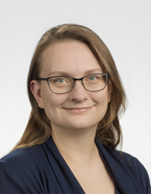 Speaker: Denina Simmons, Assistant Professor, Canada Research Chair in Aquatic Toxicology, Ontario Tech University
Speaker: Denina Simmons, Assistant Professor, Canada Research Chair in Aquatic Toxicology, Ontario Tech University Presentation: “Pandemics and Wastewater – new methods for Community Health in a fast-changing World”
Bio: Dr. Simmons received her undergraduate degree from Ryerson University and then completed her master’s degree at Trent University under the supervision of Dr. Chris Metcalfe investigating the effects of personal care products on the estrogen receptor. Dr. Simmons continued her doctoral research at Trent under the supervision of Dr. Dirk Wallschälger and Dr. Neil Emery when she examined the metabolic detoxification of selenium by algae. Dr. Simmons completed two consecutive post-doctoral fellowships at Environment Canada, working with Dr. James Sherry in the Aquatic Contaminants Research Division, where she developed protein profiling and proteomics methods to investigate fish health. After that, Dr. Simmons had two consecutive contracts working on ‘Omics projects with the Ontario Ministry of Environment and Climate Change.
-
Africa Flores-Anderson
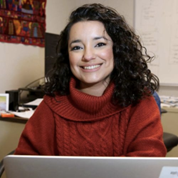 Speaker: Africa Flores-Anderson, Ph.D. Candidate, McGill University
Speaker: Africa Flores-Anderson, Ph.D. Candidate, McGill UniversityPresentation: “Earth Observation's Potential for Environmental Management”
Bio: My research focuses on advancing the detection of forest change in tropical areas using multiple satellite resources, including Synthetic Aperture Radar (SAR) and optical satellite data. The main objective is to strengthen forest monitoring systems by improving the timing and accuracy of forest change detection. My research will expand our understanding of the types of deforestation that SAR and optical datasets can detect and how these two different types of satellite sensors can complement each other to improve forest change detection.
-
Sheldon Jordan - KEYNOTE
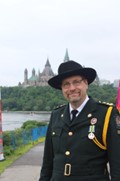 Speaker: Sheldon Jordan, Analysis Coordinator for Illicit Markets, INTERPOL.
Speaker: Sheldon Jordan, Analysis Coordinator for Illicit Markets, INTERPOL. Presentation: "Compliance and Enforcement in a Brave New (Green) World" - KEYNOTE
Bio: Sheldon Jordan is an Analysis Coordinator for INTERPOL's Illicit Goods Programme since 2022. Prior, he was Director General of Wildlife Enforcement with Environment and Climate Change Canada's Enforcement Branch for 12 years. He has over 30 years of law enforcement experience in multiple field and leadership roles, covering operations, policy and criminal intelligence. Sheldon is a Past Chair of INTERPOL's Wildlife Crime Working Group and is a current member of the UK Government's Illegal Wildlife Trade Advisory Board.
-
Phill Cassey
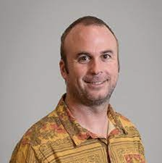 Speaker: Phill Cassey, Head of the Department of Ecology & Evolutionary Biology, and the Invasion Science and Wildlife Ecology Group, University of Adelaide
Speaker: Phill Cassey, Head of the Department of Ecology & Evolutionary Biology, and the Invasion Science and Wildlife Ecology Group, University of AdelaideFinal reflections, closing remarks
Bio: is Head of the Department of Ecology and Evolutionary Biology, at the University of Adelaide. He has studied environmental biosecurity and wildlife conservation for 20+ years and is globally recognized for his research in invasion ecology and illegal wildlife trade.He has published over 300 international scientific research papers and is a vocal advocate for equity and inclusivity in scientific research and training practices. Phill is an Academic member of the AELERT and INTERPOL Wildlife Crime Working Groups, and in 2019, he was nominated by the Australian Government (Department of Agriculture, Water and Environment) to represent Australia as a lead author on the UN Intergovernmental Science-Policy Platform on Biodiversity and Ecosystem Services (IPBES) ‘Global Biodiversity Assessment Report.’
Day One
|
Opening Remarks: 9:00 to 9:20 am
|
|
Morning presentations A:
|
|
Keynote presentation: 10:30 to 11:00 am: Michael Enns, Director General, National Priorities and Planning - Title: “Technology and Data Science in Environmental Enforcement” |
|
Morning presentations B:
|
|
Afternoon presentations C:
|
|
Afternoon presentations D:
|
|
Open discussion and closing remarks: 5:00 to 5:30 pm: Peter Stoett and Delon Omrow |
Day Two |
|
Opening remarks: 8:45 am - Peter Stoett |
|
Day two morning presentations E:
|
|
Day two keynote presentation:
|
|
|
Working groups
|
|
Open discussion, future research directions: Moderators: Peter Stoett and Delon Omrow |
|
Closing remarks: 3:15 to 3:30 pm: Phill Cassey, Peter Stoett and Delon Omrow |
Registrant list included:
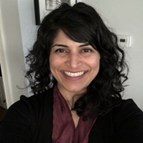 Attendee: Shilpa Dogra
Attendee: Shilpa Dogra
Bio: Dr. Shilpa Dogra is an exercise physiologist focused on improving health and performance through evidence-based exercise prescription. Dr. Dogra's two main areas of research are asthma and aging. Work in the area of asthma is primarily laboratory-based and incorporates the use of physiological measures to understand the acute and chronic response of the airways to different types of exercise. Work in the area of aging is primarily epidemiological and community-based. Large epidemiological datasets are used for secondary analysis, and community interventions are run in partnership with local seniors’ centres.
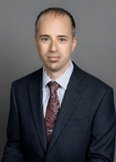 Attendee: Derek Giberson
Attendee: Derek Giberson
Bio: Currently a city councillor in Oshawa. He is a Durham College alum, a parent by previous vocation, a Canadian music industry professional, and a (proud!) downtown Oshawa resident. Community service and working for the greater good are at the very core of my values. I believe that change for the better is possible.
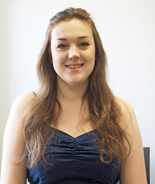 Attendee: Victoria Ginsley
Attendee: Victoria Ginsley
Bio: Victoria Ginsley completed her undergraduate degree and her master's degree in Criminology at Ontario Tech University. She is currently completing her PhD in Criminology and Social Justice under the supervision of Dr. Carla Cesaroni and Dr. Barbara Perry. For her master's research, Victoria surveyed undergrad students on their perceptions of the trans community. For her PhD, she will continue her research by interviewing members of the trans community about their interactions with the justice system. She has also done research on bondage, discipline, sadism and masochism, and de-stigmatizing the kink community. Victoria hopes to one day be a professor and teach courses on gender and sexuality.
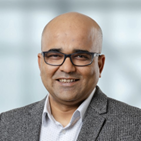 Attendee: Shehroz Khan
Attendee: Shehroz Khan
Bio: Shehroz Khan currently works as a Scientist in the Artificial Intelligence & Robotics for Rehab lab at the Toronto Rehabilitation Institute (TRI). He obtained his Ph.D. degree from the University of Waterloo, Canada, in 2016 and his Master's degree in 2010 from the National University of Ireland Galway, Ireland.
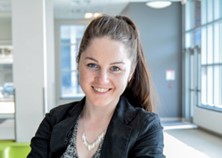 Attendee: Caileigh MacIsaac
Attendee: Caileigh MacIsaac
Bio: Caileigh is a Senior Analyst with the leading ESG consultancy, Quinn+Partners. From her background in market research, she is well-versed in public policy, sustainability certifications and renewable energy development. With experience in project management, research, analysis and communications, Caileigh applies her skills to help implement data-driven decision-making in the execution of clients’ sustainability programs.
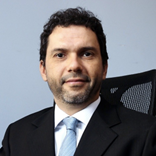 Attendee: Rodrigo Mayrink
Attendee: Rodrigo Mayrink
Bio: My research focuses on the use of stable isotopes as a tool to discriminate captive x wildlife animals and to identify the geographic origin of animals seized from illegal trade, especially in the Amazon region. Furthermore, I participate in research initiatives to apply stable and radiogenic isotopes in attributing the origin and/or authenticity of other types of criminal evidence, such as wood from illegal deforestation, pollutants, illicit drugs, and defrauded food.
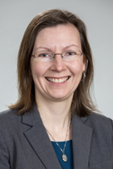 Attendee: Jennifer McKellar
Attendee: Jennifer McKellar
Bio: Dr. McKellar is taking a big-picture view of energy supply and uses, it to understand the associated costs and environmental impacts. The results can be used by government, industry, technology developers and individuals to inform decisions and policies on energy. The ultimate goal is to help society develop and implement sustainable energy systems.
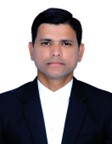 Attendee: Faheem Uddin Mohammad
Attendee: Faheem Uddin Mohammad
Bio: Outreach/Co-Ordinator for various Women's Safety & Empowerment initiatives in India and at a Global level. Working with various corporate companies, government bodies and NGOs levering technologies, striving towards eliminating all forms of discrimination against children/women, human rights, and environmental crimes. Believes in education, engagement, and raising awareness.
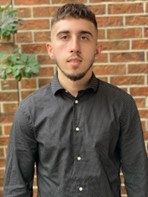 Attendee: Adam Rodrigues
Attendee: Adam Rodrigues
Bio: Adam Rodrigues completed his Honours Bachelor of Arts at York University, where he studied Criminology. He is currently pursuing his Master's degree in Criminology at Ontario Tech, with hopes of further progressing to gain his Ph.D. Adam is interested in researching both green and corporate crimes. Adam is currently working to develop an international database centred on environmental crimes and the policies surrounding them. His thesis work is focused on the state-corporate harms in chemical valley and the linkages between the neoliberal state of the political economy and Canada’s colonial history.

Attendee: Langis Roy
Bio: Langis Roy received a B.A.Sc. degree in electrical engineering from the University of Waterloo, Waterloo, ON, Canada, in 1987, and M.Eng. and Ph.D. degrees in electrical engineering from Carleton University, Ottawa, ON, Canada, in 1989 and 1993, respectively. He is currently the Deputy Provost for Ontario Tech University and previously served as Dean for the School of Graduate and Postdoctoral Studies at Ontario Tech University, Oshawa, ON, Canada. He has coauthored over 100 scientific papers. He holds three patents on system-on-package designs. His current research interests include microwave electronics, high-performance electronic circuit packaging, integrated active antennas, reconfigurable microwave components, wireless sensors, and aerospace/automotive applications, now extending to terahertz biosensing and wireless power harvesting.
